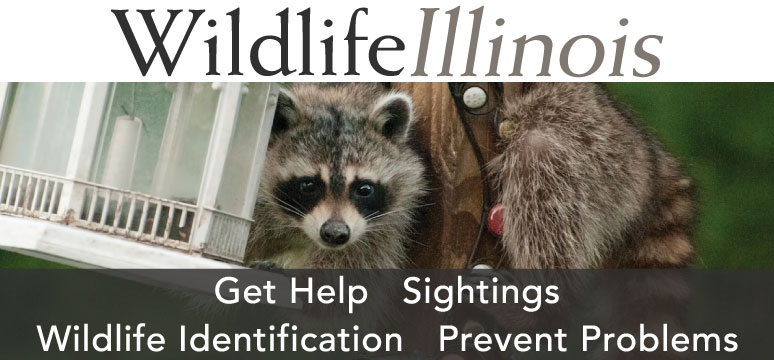
All photos courtesy of Ross Albert.


All photos courtesy of Ross Albert.
As is the case with many individuals working in wildlife conservation, Ross Albert credits his inspiration to his early experiences in nature. Albert fondly recalls memories of a childhood spent in nature- chasing frogs, catching snakes, practicing with his bow, and building forts in the woods near his childhood home. Additionally, Albert reflects on a great deal of time spent with his father and grandfather as they taught him to hunt and fish, cherishing the time spent with them and acknowledging the profound love for nature it instilled in him.

The impact of Albert’s formative years spent in nature also profoundly influenced his professional career as well. Initially planning to attend trade school, Albert altered his plans after taking an Environmental Science course during his senior year of high school.
“That class made me realize that I could have a career conserving and promoting what I enjoyed most—fish and wildlife,” said Albert.
Following graduation from high school, Albert attended Blackburn College in Carlinville where he earned a Bachelor’s majoring in Biology-Environmental with a minor in Chemistry. Additionally, Albert was part of many different projects through Blackburn College’s student-led work program.
“I held several positions through the college, including Forestry Manager, Water Sampling Technician and Teaching Assistant,” he said. “As Forestry Manager, I spent time with groups of students working on land owned by the college, removing invasive species, planting pollinator habitat, planting hardwood trees, conducting Forest Stand Improvement and conducting prescribed burns. As a Water Sampling Technician, I collected water samples on the Upper Macoupin Creek Watershed to help obtain Natural Resources Conservation Service Regional Conservation Partnership Environmental Quality Incentives Program funds for agricultural conservation practices within the county.”
In addition to his work under Blackburn’s student-led program, Albert also worked as an assistant on a study conducted on the reproductive character displacement of northern and southern cricket frogs in Virginia and North Carolina. Reproductive character displacement is a term that refers to the ecological development to lessen competition between two or more species that share the same geographical region and therefore share resources. A more well-known example of this type of displacement exists within finches of the Galapagos. As it pertains to the study on the cricket frogs, study researchers worked to determine if there was a change in dominant frequency of vocalizations and the body masses of males, while also analyzing the sound preferences of other species females within the area.
Devoted to a career in conservation work, Albert plans to continue his work in natural resources through his role as a District Wildlife Biologist (DWB) for Illinois Department of Natural Resources (IDNR). Within his assigned counties of Brown, Morgan, Pike and Scott, Albert will also oversee the improvement of public land sites such as Ray Norbut State Fish and Wildlife Area (SFWA) along with its Dutch Creek and East Hannibal units, Siloam State Park – Buckhorn Unit and Weinberg King SFWA – Spunky Bottoms Unit, and also work related to waterfowl management at Meredosia Lake National Wildlife Refuge.

As for his plans for improvement, Albert has many goals set for the lands within his ambit as a DWB, “We are currently working on installing firebreaks on Siloam-Buckhorn Unit, with the intent of conducting a prescribed burn on approximately 1,200 acres in the spring of 2024,” explained Albert.
“We are also setting back old field succession on some of the grassland areas so we can start making improvements on these fields, with the intent of improving bobwhite quail habitat,” he continued. “Over the next couple of years, I hope to focus on on-the-ground habitat work on my sites. I want to introduce prescribed fire to these sites, work on invasive species removal, forest stand improvement, and wetland restoration. This should provide better hunting opportunities and improve wildlife diversity.”
While others might be daunted by the sheer amount of work these expressed goals entail, Albert’s extensive work ethic, as proved by his many previous roles in natural resource conservation, demonstrates that he might be just what the doctor ordered for the improvement of these public lands. Although prescribed burns and forest stand improvement are undoubtedly more complicated, it is easy to see how someone once enthralled by building rustic stick forts will be the one to implement much needed changes to woodlands in his counties in the hopes of promoting hunting and fishing, a pastime with which he holds in very special regard.
Welcome Ross Albert!
Kaleigh Gabriel is a Wildlife Outreach Specialist with Lewis and Clark Community College, working out of the Illinois Department of Natural Resources building to assist the Division of Wildlife Resources. Growing up just between Sangamon and Christian counties, she spent a lot of her time hunting and fishing in Illinois. She received her bachelor’s degree in writing/journalism from Manchester University, Indiana.
Submit a question for the author